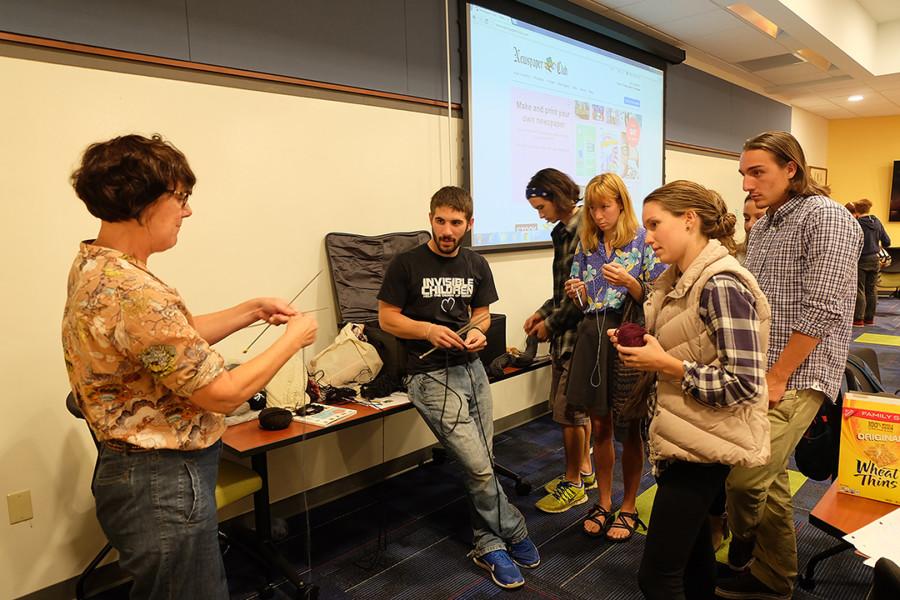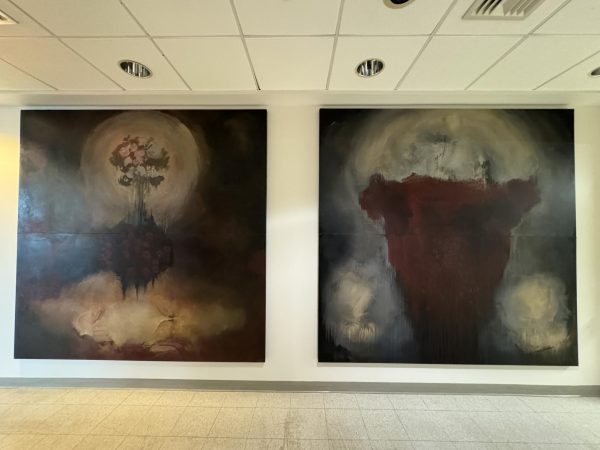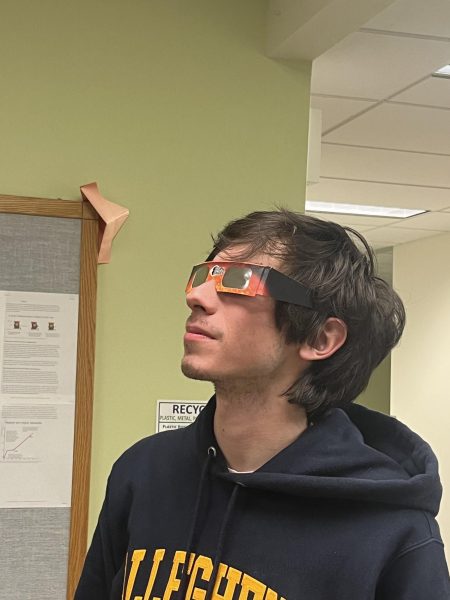Guest lecturer teaches sustainable fashion course
Guest lecturer Amanda Langdown, senior lecturer from the department of design at Manchester Metropolitan University School of Fashion taught a one week hands-on sustainable fashion course in the Collaboratory on the third floor of the Pelletier Library from September 21-25.
This course was one credit and discussed the relationship between environmental pollution and labor injustices within the current fast fashion clothing industry.
According to Langdown, the main cause for the emergence of the fast fashion industry is that businesses want to maximise profits.
“Fast fashion existed to enable businesses to make more money,” Langdown said. “Because the traditional fashion cycle was twice a year, two seasons, they realized that…there was a huge demand for novelty and diversion, that human beings crave novelty. They realized that if they could do it quicker they could get people to buy more.”
She explained how a change in supply speed leads to an increase in resource demand and this is how fast fashion causes environmental pollution.
“I just think that it’s had to speed up the supply chain. That’s put pressure…on resources, so you need more and more resources to feed the hunger for more stuff. That puts more strain on the earth’s resources as well,” said Langdown.
During the class, Students had to design and knit a sustainable garment.
Keegan Sumser, ’18, thought it was an interesting class and unlike any she has taken before. She said it brought to her awareness how fast fashion is associated with environmental problems.
“It is an interesting class, and I’m excited for it. I haven’t taken an environmental class yet, but this course gets me excited for that as well,” she said.
Twenty five students attended the Tuesday class where they learnt basic knitting skills. Owen Ludwig, ’18, said that learning to knit was something new for him.
“I’ve never done this before. It’s great for men to challenge gender stereotypes,” he said.
Langdown provided materials for the students to use. She also brought in some of her previous work and one item she is currently working on to give students inspiration.
Beth Choate, assistant professor of environmental science at Allegheny College, organized the course. She said she saw Langdown give a presentation and this inspired her to set it up at Allegheny.
“I had never thought about this idea of sustainable fashion,” Choate said. “I saw her give a presentation…and that made me think about this idea of how unsustainable our product of fast fashion is. In thinking about production…labor and worker rights…waste products, and so throughout the cycle we really have an unsustainable system.”
Langdown suggested ways for people to be more sustainable when it comes to clothing.
“The first thing is to reduce the stuff you buy, reuse it and recycle,” she said.
Choate also said this is an important thing for people to start thinking about.
“I don’t know where a lot of my clothes come from,” said Choate. “I spend a lot of time thinking about…where my food comes from, but clothing I guess is another big thing. I wear clothes every day, I eat everyday and so it’s interesting that we have this huge food movement, everybody’s thinking about food, everybody wants sustainable, they want local, but no-one’s really thinking about clothing.”
Choate said she was excited by the amount of interest this course attracted from both the Allegheny and the Meadville community.
“We have professors attending and staff members…and we’ve gotten so much interest from people in the community,” Choate said. “The number of people who are interested in this topic or are thinking about this topic is really kind of mind-blowing.”







